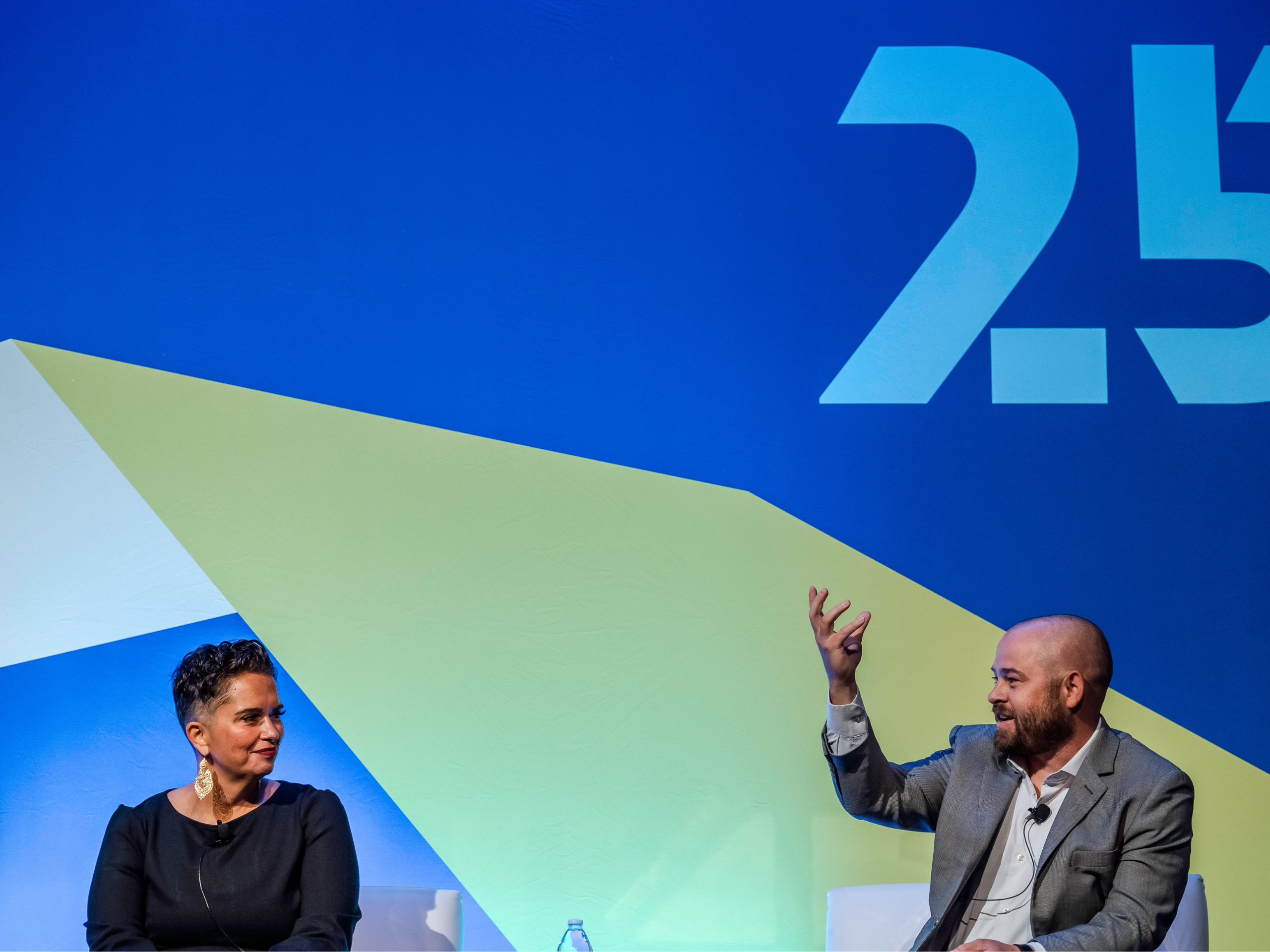Frances Messano, Chief Executive Officer (Cross-posted to The Building Bridges Initiative)
Earlier this month, my organization, NewSchools Venture Fund, gathered venture leaders, staff, funders, and supporters from every chapter of our history to celebrate twenty-five years of impact. Weeks later, I’m still smiling from the many inspiring moments shared with the people who have been closest to our work. What continues to stand out is the provocation to tell the truth about the real challenges facing K–12 education and to engage with candor, courage, and compassion as we collaborate on the important work ahead.
This time in education is different from anything we’ve experienced before, and it’s a moment when our students need us to stand with them more than ever. They need and deserve our belief in them and our investment in their futures so they can become the problem solvers our society needs most. But how can we stand up for students when there’s so much polarization that’s getting in the way? To me and others, it’s very clear that we need to build new, broader coalitions to bring about true change in education.
I am proud to have participated in The Building Bridges Initiative, which started with a group of almost twenty education advocates from left, right and center who came together to align on an aspirational vision for change in education. Following on this group’s work, I thought it was important to invite four of my fellow coalition members—Jennifer Alexander, Executive Director, PIE Network; Eugene Pinkard, Director K12 Leadership, The Aspen Institute; Keri Rodrigues, President, National Parents Union; and Luke Ragland, Senior VP Grants, Daniels Fund—to share their experiences with the broader NewSchools community.
At the event , each panelist talked openly about their initial hesitations to join a bridging effort, especially since similar efforts have failed in recent years. They acknowledged the things we all know too well—that our nation is painfully polarized, that we have purity tests to determine whether someone is in and outside of our tent, and that we have forgotten how to compromise and work across lines of difference. We discussed the messy, non-linear journey to finding common ground among our group and what kept us all coming back to the table.
In a nutshell, we were able to find consensus because we had built relationships. Before every meeting, we broke bread together. Over dinner we talked about our children, our favorite movies, our shared goals, and saw ourselves reflected in each other. During our meetings, we disagreed with each other without being disagreeable. We engaged in respectful debate and brought in evidence and examples to support our claims. And even when we faced what felt like an impasse, we kept coming back to the table because of our deep belief in the power of standing together and standing up for our young people.
I’m proud that we created a joint statement outlining what we want to be true for today’s students, and I want more leaders to undertake the hard messy work of coalition building. But I also want us to do it with eyes wide open. Building better and braver coalitions isn’t the end goal, it’s table stakes. If we can’t even talk to each other, we will never get to the actual work that our students, families, and educators are counting on us to do.
For the Building Bridges Initiative, we found convergence and momentum by agreeing on what we wanted to be true for all students and then working from there to answer the question, “What will it take?” We agreed that public education is a critical player in preparing citizens to effectively participate in our democracy and a critical engine of social and economic mobility in America. We defined the need for a future education system that is adaptable, centered around student needs, and rooted in a broader definition of student success. We agreed that parents should have more resources at their disposal to invest in student enrichment activities and support to complement what their children are learning and doing in schools. We were excited about the possibility to redesign the role of educators and attract new talent to power student learning.
As anticipated, we didn’t agree on everything. In those moments of tension, we had to decide what mattered most — centering students and sustaining our coalition or allowing our ideological differences to stop us from making progress. We chose to care more about what students and educators need in this moment in time. And that’s the choice we must continue to make in the future, especially when it’s hard. The process required each of us to hold strong to our values, while being willing to compromise on how we get things done but never on if we get things done.
I believe we can choose to be better and braver education leaders, and this experience has affirmed for me that I’m not alone. As I lead the team at NewSchools into our next chapter, we will center our values as we put dollars to work, not just in service of strengthening coalitions, but advancing meaningful solutions that hold the most promise for students who need them most. And we will keep listening, learning, and finding common ground because achieving educational equity is too big for any one organization to solve alone. It’s going to require all of us.
Frances Messano is CEO at NewSchools Venture Fund
